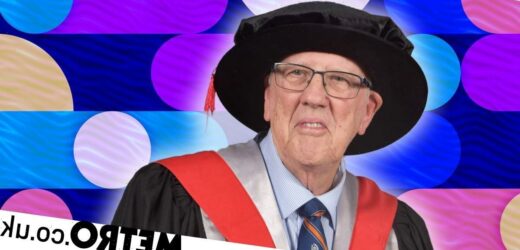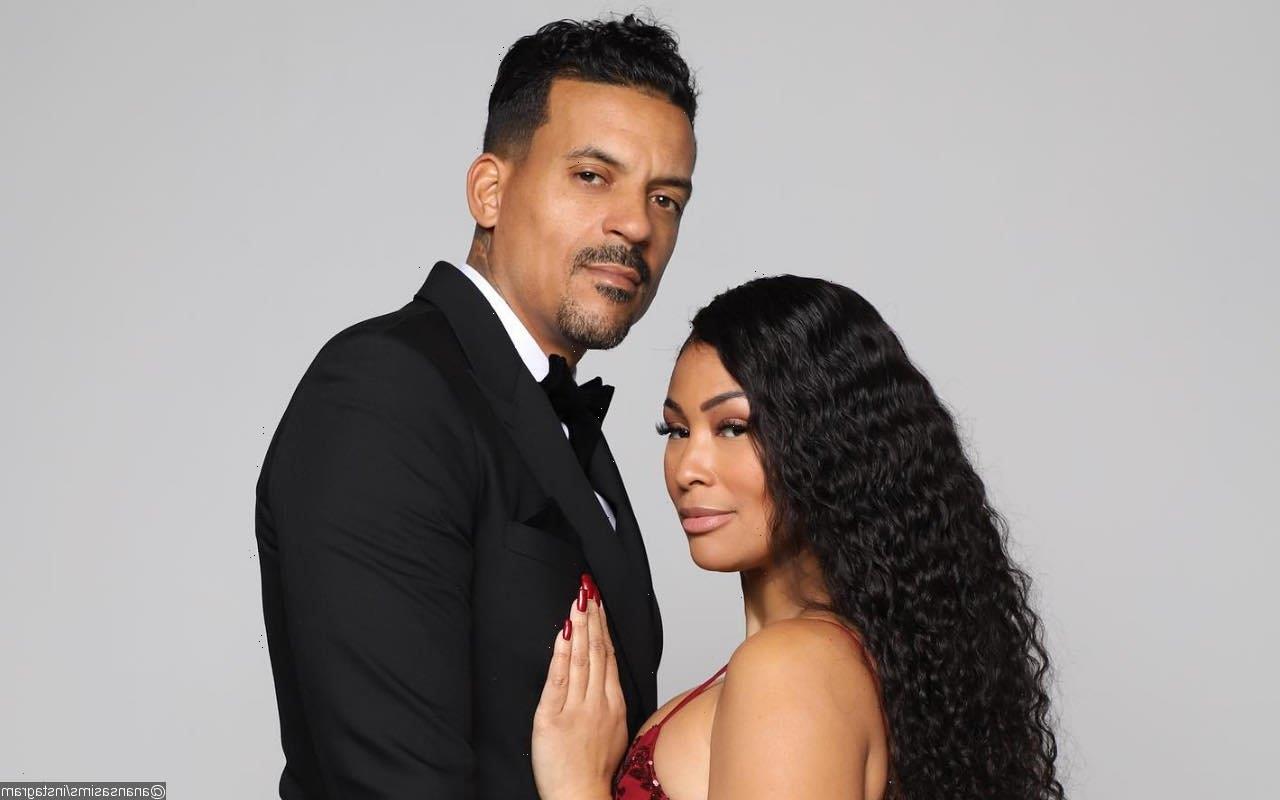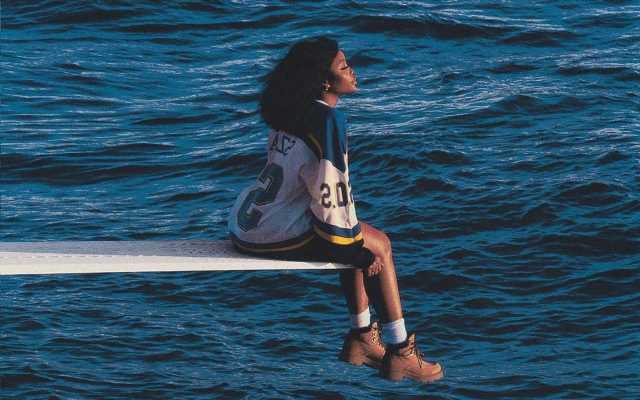As I waited nervously for my name to be called out, I couldn’t believe I was finally here.
Twenty five years after I had first considered it, I was finally about to be awarded my PhD in Economics.
My bonnet kept slipping over my ears and I was afraid I’d stumble as I crossed the stage, but when the moment came, all I felt was pride.
‘Go Poppa!’ a member of my family yelled from the audience, triggering a ripple of laughter throughout the room.
I was easily the oldest at my graduation ceremony – not just by years, but by decades. All around me swarmed excited young graduates, laughing and taking selfies.
I was ancient enough to be their grandfather, and very much felt like an old man in contrast to their youth, but they were kind and congratulated me. Some even wanted me in their selfies!
The thought of undertaking a doctorate first came to me in 1997, when I retired from a satisfying business career at the age of 57.
I was easily the oldest at my graduation ceremony – not just by years, but by decades
Years earlier, at the very beginning of that same career, I had completed an MBA at Manchester Business School. I’d always enjoyed learning, and making connections between theories and the real world, so it made sense to do further study… But I ended up having an even more compelling reason.
My wife, Sue, a radiotherapy nurse, had decided at the age of 40 that she actually wanted to be a doctor instead. She’d dropped out of school at the age of 16, so she had to go back and complete the last two years of her secondary education at night school, while still working and raising our three young children.
Not only did she pass, she did so well in her final exams that she was offered a place at medical school, commencing university at the age of 42. The course was demanding and exhausting, and I know she frequently felt as if she’d never make it, but my three kids and I were there to cheer her on when she graduated as a doctor not long before her 50th birthday.
If Sue could undertake such an intensive course of study, all while raising a family, why couldn’t I? The reasoning was sound, but I wasn’t sure that I was up to the task, so for the next few years, I took on consulting work instead.
By 2000, I’d worked up the courage to enrol in selected finance and econometric subjects, completing five of these university subjects across the next few years. I had to do them as prerequisites to starting a PhD. I studied at RMIT, which is a university in Melbourne. Throughout this time, I was still doing a little consulting work on the side, but not much.
Being back at university in 2000, 30 years after I’d last been a student was disorienting – and a little frightening.
I’d never even heard of a computer when I did my MBA, yet suddenly I was expected to program one to complete my statistics degree. It was daunting, but I pressed on. Sue hadn’t quit, so I didn’t either.
All of my studying was cast aside, however, when my son Piers, a pilot, died of a brain aneurysm in 2013 – he was 39 and I was 73.
I threw myself into setting up a charity in his memory – a program that now supports the mentoring of 40 aviation students a year. Later that year, I took the plunge and enrolled in a PhD. Piers’ death had shown me that life is short, and to seize the moment. I was determined I would.
Unfortunately, fate had other plans.
Not much more than six months after Piers’ death, Sue was diagnosed with stage four ovarian cancer. I struggled on with my PhD, but withdrew in 2015, when it became clear that her illness was terminal.
Sue wished more than anything to die at home and I’m pleased that, with the support of my two daughters and palliative care, this could happen. Sue loved life and fought with all her might, but died in March 2017.
After the intense final years of nursing her at home, the house – and my days – suddenly felt very quiet.
A year after Sue’s death, I made the decision to restart my PhD, from scratch and at a different university – Swinburne University in Melbourne – partly to fill the hours, but more so due to a renewed sense of urgency of time speeding by. I couldn’t bear to waste any more of it.
At this point I was 78, and people must have thought I was mad, or at best rather optimistic. Certainly some friends and colleagues expressed their disbelief or puzzlement that I would commit myself to such a project, rather than spend my golden years pottering around the garden or on the golf course.
But I didn’t want to. After waiting for so long, I felt a new lease of life – sometimes working at my desk until 4am as the ideas tumbled out.
Though I’d initially commenced as a part-time student, I converted to full-time in 2020… and then along came Covid-19. The following two years of my PhD work were undertaken in almost complete isolation, which was extremely difficult and dispiriting.
That said, my PhD gave me a focus and something to do in those miserable lockdown years, and for that I am grateful.
Finally, one Friday afternoon in mid-2022, an email arrived with the subject line: ‘Congratulations’. My thesis had been passed with minor amendments.
My graduation day came a few months later, and what a mix of emotions I experienced!
My daughters – one a paediatrician, the other with a PhD in psychology – joked that I had at last joined their ranks. I felt immense pride, mingled with an overwhelming sense of completion and satisfaction that I finally had.
There was regret, though, too – that I wasn’t able to share the moment with my late wife and son, whose deaths had inspired me to keep going. To use the time I had, after theirs had run out too soon.
People ask me if I’m finished now, but the answer is a definite no. I hope to publish my results, and then to do further research. Why not? Age is just a number, and I intend to use every last minute that I have.
As told to Kylie Ladd
Age Is Just a Number
Welcome to Age is Just a Number, a Metro.co.uk series aiming to show that, when it comes to living your life, achieving your dreams, and being who you want to be, the date on your birth certificate means nothing.
Each week, prepare to meet amazing people doing stereotype-defying things, at all stages of life.
If you have a story to share, email [email protected]
Source: Read Full Article




